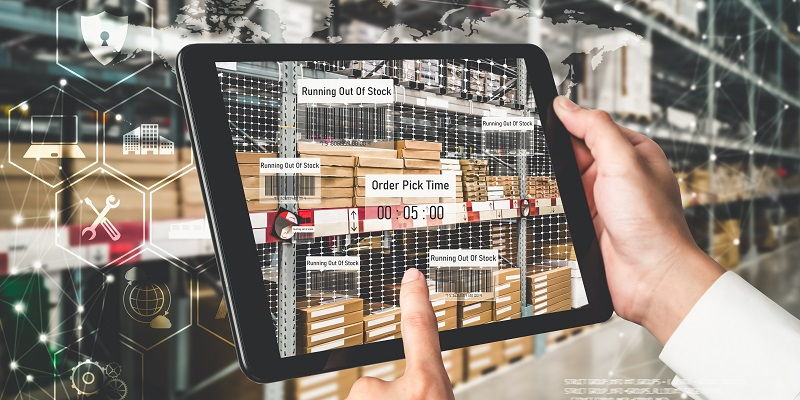Supply chains are the backbone of any manufacturing industry. The efficiency and resilience of supply chains not only impact a company’s bottom line but also play a crucial role in its ability to respond to market changes, customer demands, and unexpected disruptions. In recent years, the increasing complexity and globalization of supply chains have made them more vulnerable to risks, uncertainty, and inefficiencies. To meet these challenges, digital supply chains are needed to be more agile, flexible, resilient, and sustainable. In this context, SAP, the German multinational software company, has announced its plans to expand its logistics chain solutions to build a business network for the manufacturing industry. Let’s delve deeper into SAP’s digital supply chain solutions and their implications for the manufacturing industry.
The Need for Digital Supply Chains
Traditional supply chains rely on manual processes, paperwork, and siloed data, which hinder their ability to adapt quickly to changing circumstances, coordinate activities across the entire supply chain, and optimize their performance. Moreover, the lack of transparency and traceability in traditional supply chains makes them more susceptible to fraud, counterfeiting, and other risks.
In contrast, digital supply chains leverage advanced technologies such as cloud computing, Internet of Things (IoT), blockchain, artificial intelligence (AI), and machine learning to enable real-time visibility, tracking, and analysis of the entire supply chain. This allows manufacturers to make informed decisions, reduce waste, improve quality, and enhance customer satisfaction. Furthermore, digital supply chains enable better collaboration among suppliers, partners, and customers, leading to improved efficiency, responsiveness, and innovation.
SAP’s Expansion of Logistics Chain Solutions
SAP is a global leader in enterprise resource planning (ERP) systems, which manage business processes such as accounting, procurement, sales, and inventory. In the past, SAP has mainly focused on providing ERP solutions for manufacturing and logistics, such as SAP S/4HANA, SAP ERP, and SAP Transportation Management. However, with the increasing need for digital supply chains, SAP realized the importance of expanding its logistics chain solutions to integrate with other technologies and provide a seamless end-to-end solution for the manufacturing industry. As a result, SAP announced that it would build a business network for the manufacturing industry, enabling manufacturers to manage their entire supply chain from sourcing to delivery. This network will leverage the latest technologies such as IoT, AI, and blockchain to enable real-time tracking, data sharing, and insights across the entire supply chain.
AI tools in SAP digital manufacturing
One of the key features of SAP’s digital supply chain solutions is AI-enhanced manufacturing. With the expansion of SAP Digital Manufacturing, users can now gain AI-supported insights and visual inspections in production. This means that manufacturers can leverage AI algorithms to detect quality issues, predict machine failures, optimize production schedules, and reduce waste. One of the first adopters of AI-enhanced SAP Digital Manufacturing is Smart Press Shop, a joint venture between Porsche and press manufacturer Schuler. With AI, Smart Press Shop can produce smaller batch sizes economically, which is crucial, especially in the shift to electric vehicles where the quantities are smaller.
Eliminating fractures in digital supply chains
Although the benefits of digital supply chains are clear, there are still fractures in the digital supply chain landscape that hinder their effective implementation. For example, different systems, platforms, and standards make it difficult for manufacturers to exchange data, collaborate with partners, and achieve end-to-end visibility. To address this issue, initiatives are currently underway to eliminate fractures in digital supply chains, and SAP wants to have a say in this. SAP is working with other companies, organizations, and governments to establish common data models, protocols, and interfaces that enable seamless integration and interoperability among different digital supply chain solutions.
Integration with EcoVadis
As sustainability becomes a top priority for the manufacturing industry, SAP is expanding its integration with EcoVadis, a provider of corporate sustainability ratings. This integration will allow suppliers to receive more precise sustainability indicators and make their rating status visible in the SAP Business Network. For buyers, this means they can see how they can better comply with due diligence and report against the background of new Environmental, Social, and Governance (ESG) laws. For suppliers, this means they can improve their sustainability practices, increase their competitiveness, and access more business opportunities.
In conclusion, SAP’s digital supply chain solutions offer numerous benefits to the manufacturing industry. By leveraging the latest technologies such as IoT, AI, and blockchain, manufacturers can make their supply chains more agile, flexible, resilient, and sustainable. SAP’s expansion of logistics chain solutions to build a business network for the manufacturing industry is a step in the right direction, enabling manufacturers to manage their entire supply chain from sourcing to delivery. The integration with EcoVadis is another positive development as it will promote sustainability and transparency in the manufacturing industry. Overall, SAP is playing a crucial role in driving the digital transformation of the manufacturing industry and helping manufacturers thrive in an increasingly complex and competitive global market.

